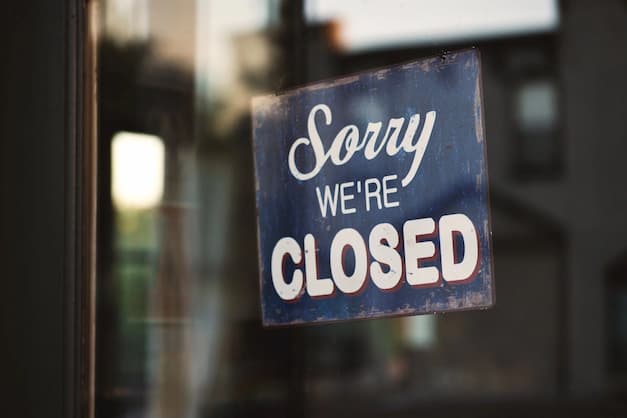
When you own a business, you are likely to purchase the necessary insurance to cover your property and product. However, although a property insurance policy can repair the damage, how are you going to cover your loss of revenue?
Thankfully, business interruption coverage is designed just for this reason. Should business halt due to an external disaster, this type of policy will cover your expenses as you work to rebuild your business.
What is Business Interruption Coverage?
Business interruption coverage covers the loss of income that a business suffers following a disaster. This is different than property insurance, which only covers physical damage to a business property. Business interruption coverage can also assist in the event that government actions cause a temporary cessation of business such as street closures or mandated curfews.
When your business is closed due to a disaster, and remains closed as the property is rebuilt and repaired, you are still obligated to fulfill financial obligations such as loan payments, payroll, utility costs, rent and other business-related costs whether your doors are open or not. This type of coverage ensures that these sorts of financial obligations are met while your business remains closed.
Typically business interruption insurance will not cover short interruptions such as power outages or scaled-back operations.
How Does Business Interruption Coverage Work?
Business interruption insurance replaces income that is lost due to closure. Essentially, it is mean to handle financial obligations during the closure and restoration period – the time required to rebuild, repair, or replace the damaged and destroyed property. Coverage typically begins 48 hours after an interruption takes place and ends once operations can resume. The specifics of business interruption coverage will vary between policies, so always consult your broker if you have questions.
Business interruption insurance is not typically sold as its own separate policy, but can be included in a comprehensive commercial policy, or added to an existing property policy.
What is Covered Under Business Interruption Insurance?
The following are typically covered through business interruption insurance:
- Any income and revenue you would have earned if the damage had not occurred (usually determined by looking at historical profits)
- Normal operating expenses that continue after the business is closed such as wages, taxes, loan payments, commissions, and training costs
- Expenses related to moving the business to a temporary location
There are certain aspects of a closure that a business interruption policy does not cover. This includes:
- Property damage (this is covered through property insurance)
- Any utility bills placed on hold during the temporary closure due to damage or disaster
- Undocumented income not in your financial records
- Income above the income cap on the policy
- Closures caused by perils not covered in property insurance policy
Every policy is different and can be customized to accommodate for your business’ unique needs. Speak to an ARC Insurance broker to learn more about how business interruption coverage can be customized for your business.
Do I need Business Interruption Coverage?
No business owner wants to be financially responsible for costs that build up while they are unable to do business. Business interruption insurance is an absolute must, especially if you work somewhere prone to natural disasters.
Business interruption coverage is more than the cost of replacing and repairing your property – it takes into account the time it takes to do so. The length of time it takes to get your business operating again can mean a significant loss of revenue without the right coverage.
Even if you own a small business, business interruption coverage is highly recommended. You may think that the cost of this policy may be less or equal to the cost of repairing your business, but you need to take into account the time it takes to make repairs.
Common Terms in a Business Interruption Insurance Policy
When it comes to understanding a Business Interruption Insurance Policy, there are a few terms you should be familiar with:
- Proof of Loss: You will need to show your insurance company exactly how much you stand to lose from a disaster-related closure. Try to provide as accurate amount as possible to avoid paying for a more expensive policy you don’t need.
- Waiting Period: You can choose to include an extended waiting period for insurance payout in order to reduce your premiums – just keep in mind that the longer your business remains closed, the more revenue you are missing out on. On average, insurance companies have a 72-hour waiting period.
- Actual Loss Sustained: This is the amount your business would have earned if not for the disaster-related closure.
- Business Income: Your business income is the net profit or loss (before taxes) as well as your normal operating costs.
- Period of Restoration: This is the period of time your insurer is responsible for the loss of business income. It is defined by the length of time required to rebuild, repair or replace the damaged or destroyed property.
You should also confirm any unique additions or exclusions in your policy.
How Much Does Business Interruption Coverage Cost?
The cost of business interruption insurance can vary depending on factors such as business size, coverage limits, and geographic location.
Contact the experienced brokers at ARC Insurance today for a quote on business interruption coverage. We’ll create a policy specifically for you and your business to ensure your unique needs are met.

